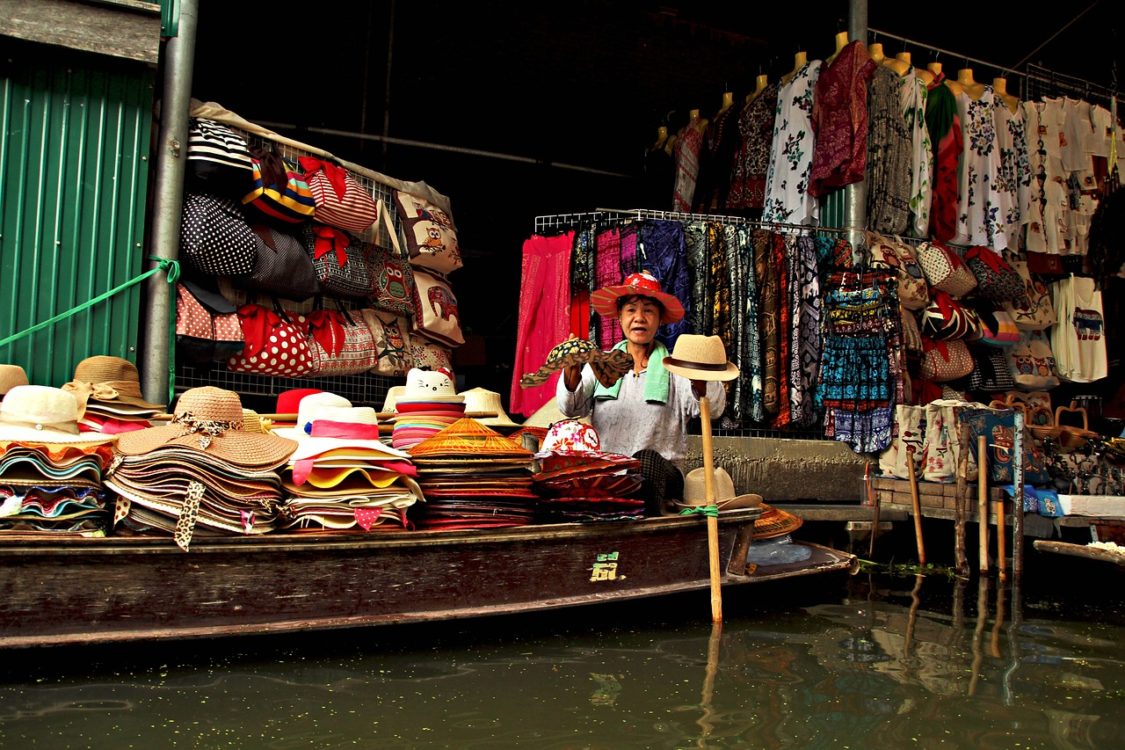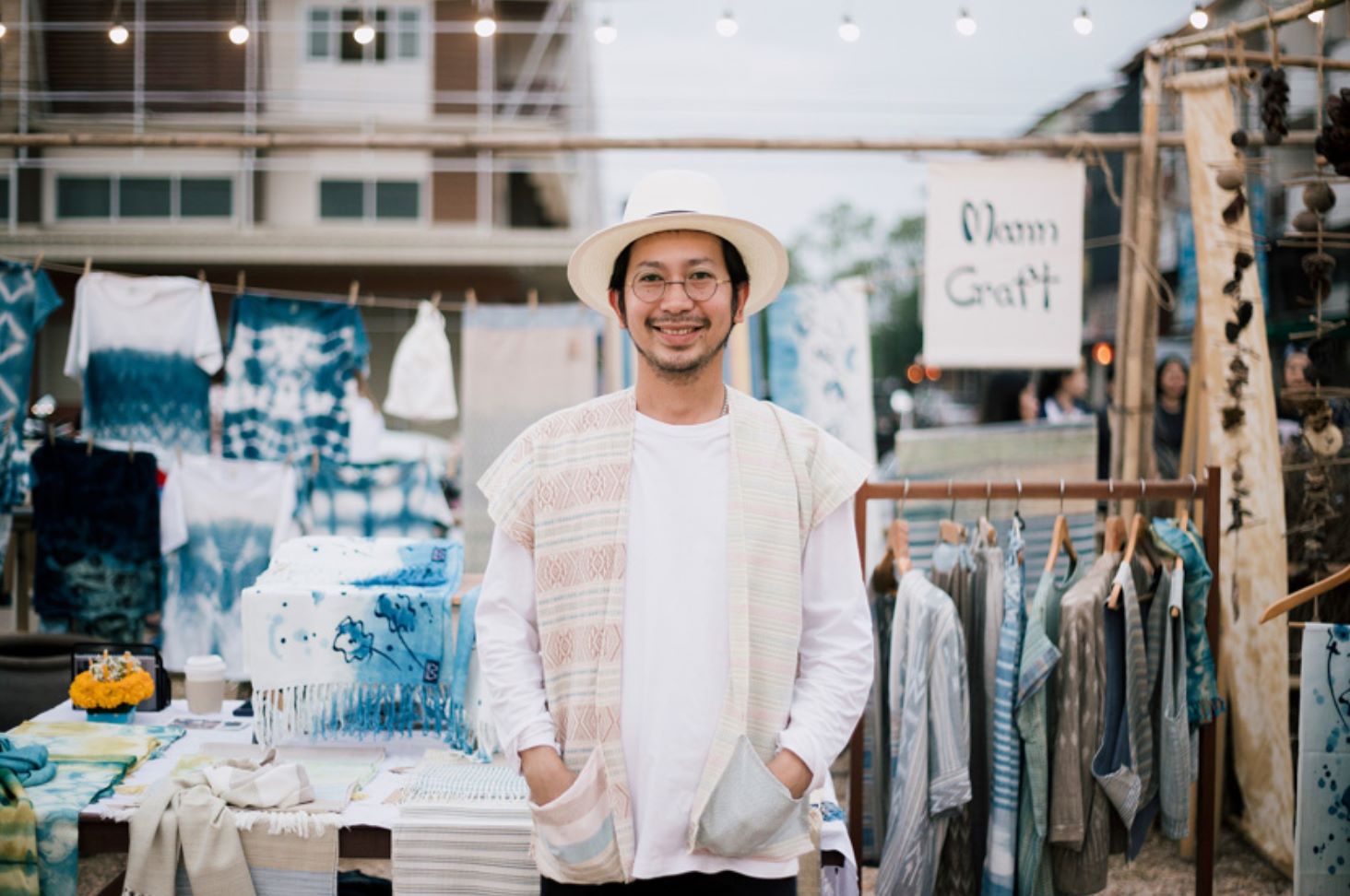Thai Entrepreneurs & Small Business Owners in Thailand

Ask a Thai college student what job they want after graduation, and they often will say, “Mâi yàak bpen lôok jâang!” (ไม่อยากเป็นลูกจ้าง), which means, “I don’t want to be an employee.” This isn’t surprising considering that over 50% of Thais are self-employed, and over 65% of those who don’t have a job yet want to be a small business owner or entrepreneur.
Thailand literally means “free land,” and Thais take that meaning to heart. Many will accept the greater risks and lower monthly income that often accompany self-employment, in return for the greater freedom of being their own boss. It’s also why one of the few complaints you’ll ever hear a Thai person make is “Mâi mee ìt-sà-rà” (ไม่มีอิสระ): “I have no freedom”.
From farmers, massage therapists, and noodle shop vendors to doctor-owned clinics and motorcycle dealerships (and a thousand small businesses in between), the freedom of entrepreneurship is an integral part of Thailand’s national character — just as important as face-saving culture and being greng jai.
We’ve talked previously how the Thai personality is shaped by the Thai language. This impact can be seen when considering the annoyed tone young people often use when saying, “Mâi yàak bpen lôok jâang!” The Thai word for an employee is lôok-jâang (ลูกจ้าง). The first part of the word (lôok) literally means “child”. The sound of the word thus makes many Thais feel that they still will be in a child-like role, having yet to fully enter the world of adulthood and independence.
This negative feeling toward the word “lôok-jâang” can be offset if the Thai person enters a career path with high status, such as a teacher, or works at an elite Thai company or gets an exciting job such as a flight attendant, but such employment opportunities are limited. And (after a while) even those Thais who do enter the teaching profession or corporate world often will look for entrepreneurship opportunities, so that they can completely be their own boss and master of their fate.
Thailand’s Creative Economy of Entrepreneurs
Thailand has recently emphasized the development of a “Creative Economy,” with schools attempting to instill the spirit of innovation, as well as an appreciation for traditional Thai arts and crafts. Thai students have enthusiastically embraced opportunities to undertake creative, innovative work. However, this effort has also made young Thais (more than ever) want to become self-employed, seeking jobs as freelance graphic artists, software developers, fashion designers, product makers, video producers, etc.
At the same time, it has caused many recent graduates to lose interest in working for the Thai government, which previously was viewed as providing good job security and reasonable salaries. So much so that some government officials have complained of a “brain drain”.
Today’s young people often view Thailand’s government offices not as places of innovation but ones that enforce the status quo. This perception might have changed had the Move Forward Party (led by Pita Limjaroenrat) been able to form a government after the recent 2023 elections, as many young people in Thailand believe the Move Forward Party is driven by a spirit of innovation. We have heard a number of young Thai professionals say that the Move Forward Party made them (for the first time ever) seriously consider a government job. However, for now, it does not look like Move Forward will be unsuccessful in forming a governing coalition.

Why Entrepreneurship is Easier in Thailand
People who live in the United States, where only about 10% of people are self-employed, might be shocked (and a little jealous) that so many Thai people can make a living working for themselves. There are 2 important reasons why Thai entrepreneurs have an easier go of it than small business owners in America and other Western countries.
1. Far Fewer Taxes & Regulations. It is incredible easy for a Thai person to start their own small business in Thailand, with few hoops to jump through at the beginning (and often none at all). Western countries like to say that regulations protect the consumer, but Thailand (with far fewer regulations for small business people) isn’t any less safe than Western countries.
For example, we would argue that food poisoning isn’t any more prevalent in Thailand, despite the fact that most food stalls, village markets, and small cafes will rarely, if ever, be visited by a health inspector. Nor are the millions of rural Thai homes built without building inspectors collapsing in upon themselves.
In addition, the Thai entrepreneur who runs a small food stall, fixes motorbikes, or operates a barber shop is paying a negligible amount of taxes, as their income level isn’t very high (although enough to provide a comfortable life).
2. Close Family Ties. It is common for two generations of a family to live together in Thailand. This allows young Thais to take greater risks in starting their own business, because (married or single) they still live with their parents and have no rent or mortgage to pay. Sometimes, the children will work with their parents and operate a business from their house, such as an outdoor restaurant or a convenience store. In addition, Thais often will have access to some small loans from family and extended family (who live in the same neighborhood) to get their small business going.
All in all, the Thai person who works for themselves often has a low stress lifestyle (compared to their Western counterparts), while also enjoying the freedom and flexibility of being a self-employed entrepreneur. This is one of the many reason “The Land of Smiles” has so many smiling people.
- Affirmations in Buddhism & Thailand - June 7, 2025
- Speak Thai Naturally Without the Gymnastics - April 20, 2025
- The Best Learn Thai Podcast and YouTube Channel - April 10, 2025




